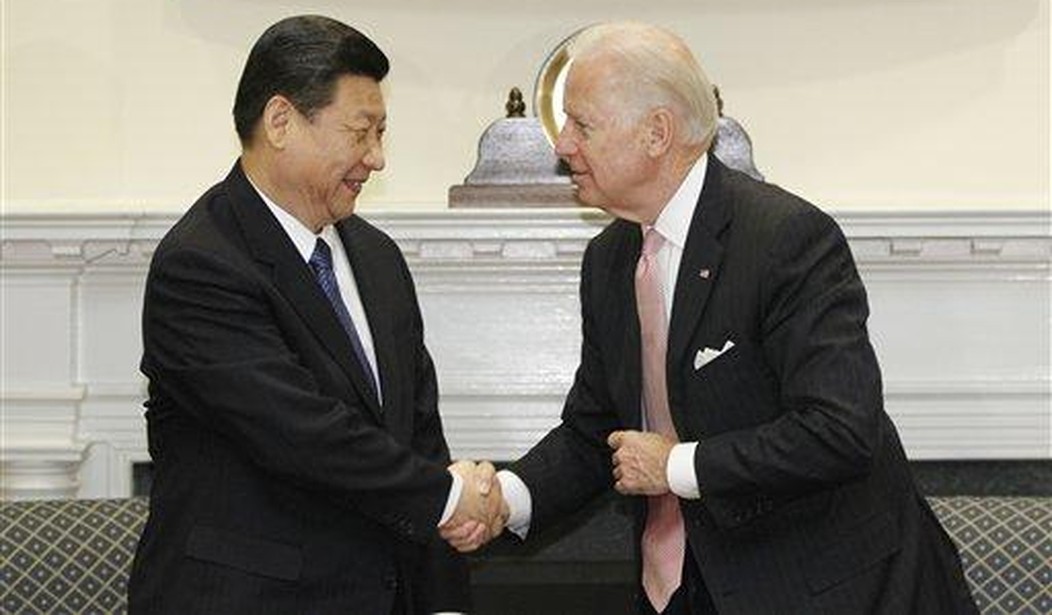Just last month, Congress spent a lot of money in the CHIPS Act to enhance America’s technological advantage over China. Forbes called the $280 billion bipartisan measure “a boon for American innovation,” not to mention “a win for the supply chain, too.” Two weeks ago, Chuck Schumer pitched the bill as a means to stay ahead of China’s investment in technology:
“Gonna be thousands and thousands of new jobs at the second chip fab in Malta, they have orders already till 2026,” Schumer said. “If you could think of what you wanted to locate here, to create good paying jobs, the new chip fab is at the top of the list to create prosperity. And it’s going to mean thousands. And these are union jobs, both union construction jobs, and additional jobs in the fab.But then there is also the NSTC, the National Semiconductor Technology Center. For the United States to remain number one in the world, we have to be at the front of the line when it comes to research. And the federal government has determined there should be one national center to lead that research.” …
“Our researchers are the best in the world dollar for dollar, we do better than the Chinese person for person, we do better than the Chinese,” Schumer said. “But if they’re putting $30 billion into this, and we put a billion which is what was happening before, they’re gonna get ahead of us. So we will stay ahead of China. Once this bill is signed into law, which it will be in the next few days, the president was going to do it this week, but COVID got in the way.”
In order to make this work in improving our competitive position against China, simply spending money on facilities won’t cut it. China gets much of its technological gain through its trade, where high-tech exports to Beijing offer lots of opportunities for manipulating the ingenuity of the West and especially the US to China’s benefit. If we don’t control exports to China in a way that restricts their access to American technology, then big chunk of that $280 billion going to subsidize innovation is likely to end up benefiting China on the cheap.
The Biden administration surely realizes this and is restricting exports to China accordingly, right? Right? Er … nope, reports the Wall Street Journal today. And the risks go well beyond the commercial as a result:
The U.S. has identified intensifying technological competition with China as a top national-security threat. But a Commerce Department-led process that reviews U.S. tech exports to the country approves almost all requests and has overseen an increase in sales of some particularly important technologies, according to an analysis of trade data.
Of the U.S.’s total $125 billion in exports to China in 2020, officials required a license for less than half a percent, Commerce Department data shows. Of that fraction, the agency approved 94%, or 2,652, applications for technology exports to China. The figures omit applications “returned without action,” meaning their outcomes were uncertain.
The result: The U.S. continues to send to China an array of semiconductors, aerospace components, artificial-intelligence technology and other items that could be used to advance Beijing’s military interests.
Sen. Tom Cotton (R-AR) took notice of the report and drew the most dire connection to American security:
By approving nearly all tech exports to China, the Biden Administration is arming the Chinese Communist Party.
— Tom Cotton (@TomCottonAR) August 16, 2022
At least one former Pentagon analyst agrees:
For Steve Coonen, the Pentagon’s former top China export-controls analyst, the high rate of approvals for licenses to sell tech with potential military use is evidence of significant policy failure.
“I have no problem trading with or feeding China,” Mr. Coonen told colleagues in a September 2021 email after resigning over frustrations with the policy. “I have a huge problem with arming China.” A Pentagon spokeswoman declined to comment on Mr. Coonen’s resignation.
Even without the national-security concerns, a lack of control on exports makes little sense. Why spend $280 billion dollars to outpace China’s technological development if we’re not controlling their access to American innovation? The apparent answer is that improving our relative position to China wasn’t the real point of the CHIPS Act.
So what was it? Pork, at least for Schumer:
2 on Your Side asked, “Is there anything else in there – and I know you’re gonna fight for it you say – but to make New York State more competitive against those other plants because again they’ve all headed down there to the Southwest.”
Schumer replied, “Well like Micron announced $40 billion. I think new plants will locate here. We compared the cost, and I was just in Albany announcing with the governor – New York is getting – providing a green job – green chips proposal and we’re gonna have $10 billion to lure the plants here. Plus, they need to get the grants, it’s $52 billion and the Department of Commerce determines who gets it. Guess who’s gonna be calling the Commerce Department on a regular basis, the majority leader who wrote this bill.”
Schumer claims New York’s universities, clean water and abundant affordable power will also be drawing cards for the chip manufacturers.
In other words, neither Schumer nor Biden are worried about China’s competition, be it commercial or military. All they’re really concerned about is passing big-spending bills to juice their base ahead of the midterms. Like every other phase of this administration, Biden’s playing checkers in a three-dimensional chess game.
And of course, let’s not forget some other commercial interests of Biden Inc that might be in play here.








Join the conversation as a VIP Member